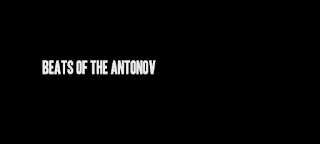 After hearing about it for months, I finally watched it this evening (in 2 installments because alkahraba gata3at halfway through). I’m not sure what I was expecting to see, but it wasn’t this. I’ve seen several clips/videos/documentaries about the Nuba Mountains, but this was a whole other level of Sudanese documentary. The cinematography, editing and music were on point, the flow and sequences were awesome, and even though it was over an hour long, it didn’t drag. I felt like such an amateur (which I am) and almost dismissed my film-making career on the spot.
After hearing about it for months, I finally watched it this evening (in 2 installments because alkahraba gata3at halfway through). I’m not sure what I was expecting to see, but it wasn’t this. I’ve seen several clips/videos/documentaries about the Nuba Mountains, but this was a whole other level of Sudanese documentary. The cinematography, editing and music were on point, the flow and sequences were awesome, and even though it was over an hour long, it didn’t drag. I felt like such an amateur (which I am) and almost dismissed my film-making career on the spot. In case you have no idea what Beats of the Antonov is, it’s a documentary about the war in the Nuba Mountains filmed and directed by Hajooj Kuka. It looks at life in the midst of a war that’s been going on for years, crushing people who already have nothing, driving them into caves and ditches in the ground to take shelter from the Antonov planes that drop bombs on their villages on a daily basis. A war that has burnt their homes over and over again, killed their children and their livestock, and generally aims to wipe them off the face of the earth. Why? Because they’re just a bunch of ‘black bags’ fluttering between the mountains, an undesirable blotch on the map of the Sudan our government wants to have. In the middle of all this, there is music, dancing, reconciliation, religion and faith. There is a rebellion the people sing for and laughter after the fire goes out, because those who have survived feel they have been born again.
Ever since I was born there has been civil war in this country. It has kept on fuelling itself and growing and expanding, burning through the country, starving healthcare and education and development so that it can flourish and grow, until no one from the past 6 generations could imagine a Sudan at peace with itself. I certainly can’t. As a result we are left with a country that is nothing but an empty shell of pain, fire, hatred and lost opportunities.
Anyway, this film bothered me on several levels. It wasn’t just watching kids in rags hiding in caves, or women talking about the homes and families they lost. It wasn’t the before and after footage of the cow that was blown to pieces by the bomb dropped by the plane. Mainly, it was all that talk about those ‘bad Arabs’ who just can’t decide who they are, and hence wage war on everyone around them who doesn’t conform to their confused idea of an identity.
I’m sure I’m pretty tired of all this talk about the Sudanese identity. What the hell is the Sudanese identity? And why are we being hounded to ‘choose’ what we are and where we belong? Yakh ma 3arfeen yakh, khalas? I don’t know if I’m Arab or African. I’m black, but my tribe is Arabian. Should I apologize for that? I don’t think I should. I don’t have to answer for Albashir’s genocidal tendencies and his intention to wipe out every ‘African’ in this country that just so happens to be situated in Africa. Why am I grouped with those ‘Northern Arabs’ like we’re just a pile of trash that has no right to be here? Why is it always us versus them? We are not like other people. We don’t have an origin or a classification and that’s the way it will ALWAYS be. I am not ‘confused’ like intellectuals like to diagnose me and my fellow Northern Arabs, I just don’t belong to one specific entity and therefore, I don’t have a specific identity. Is that a crime?
No one should live in fear of the sound of an airplane engine overhead. No one should have to wake up in the middle of the night with his/her house and children on fire. No one should be in a state of constant persecution and fear, driven into a state constant hate. This is no one’s country, and no one has the right to claim it as their own and drive everyone else. Enough of this for crying out loud, ENOUGH, karrahtona yakh.
Watch Beats of the Antonov, people. It’s not something that you’ll see on any mainstream media channel, and it will give you so much food for thought you’ll feel like throwing up. It gives a face and voice to the conflict that just isn’t real to us anymore, because we’ve gotten so used to it its almost invisible. It will get you asking yourselves questions you don’t want to acknowledge. This is what documentary film making is about. This.